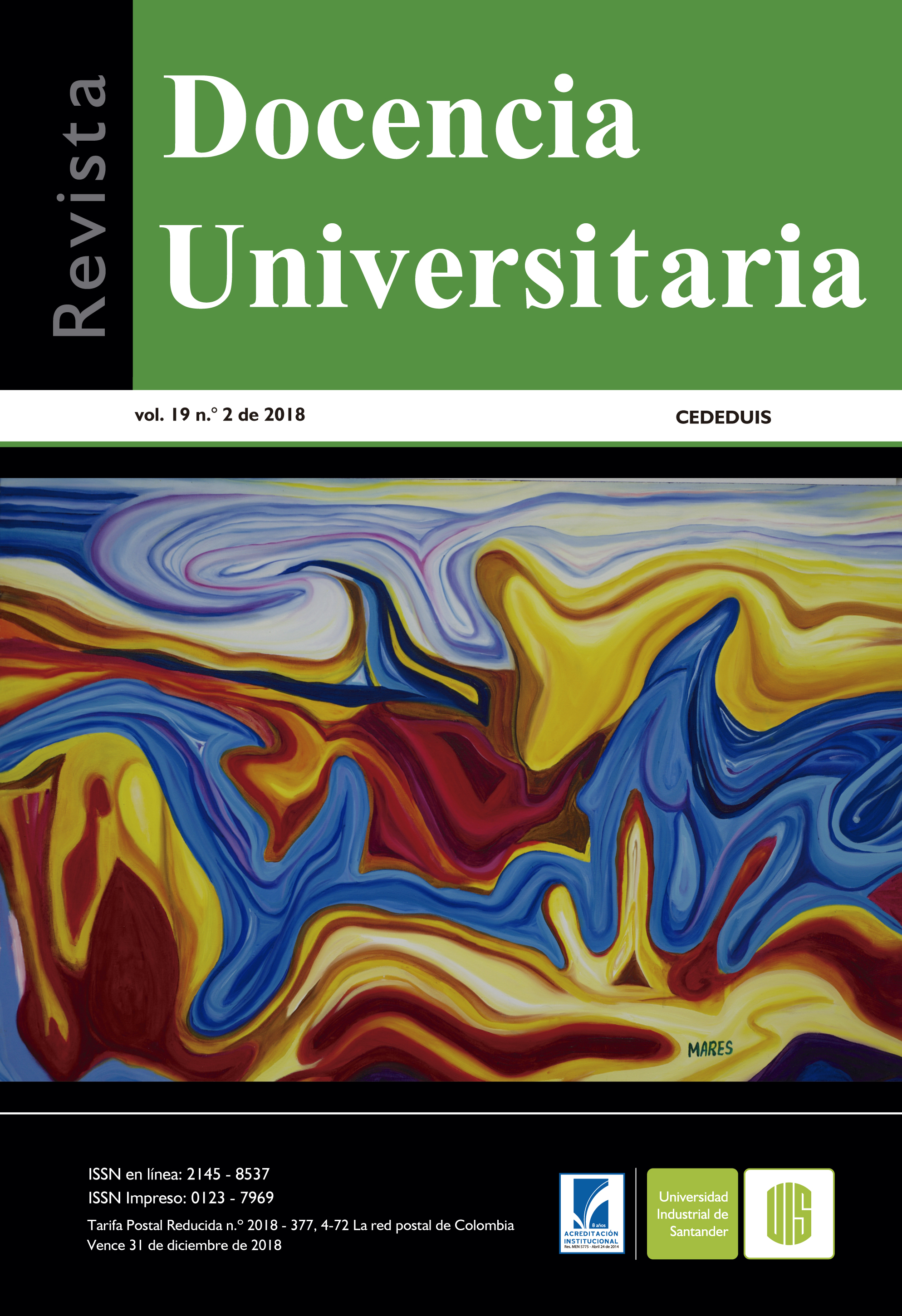Hidden digital competence in the digital native at a higher education
Published 2018-12-28
Keywords
- digital native,
- open educational resources,
- learning objects,
- educational technology,
- experiential learning
- English language ...More
How to Cite
Copyright (c) 2018 Revista Docencia Universitaria

This work is licensed under a Creative Commons Attribution 4.0 International License.
Abstract
Nowadays, upper-level students are considered as digital natives, however, there is a long way to say that they really are. The ignorance of the educational technology and the practice of this by the students are both reflected in the way they use the digital and technological resources. This lack of knowledge does not contribute nor motivates young people who are eager for sustainable learning to convince them of the great talent they have. This research work —first a pre-test and then a post-test— was applied to 33 students of the Educational Experience of Technology for the Learning of a Foreign Language of the English Language Degree and shows their progress during the school year when learning and putting into practice educational tools, which significantly impact on their long-term learning. The skill shown by students opens the way to consider (examine, analyze, study), how the development of digital competencies radically improves when they are effectively and substantially guided, by considering how far they can go when they visualize technology as part of their profession.
Downloads
References
Bernete, Francisco (2010). Usos de las TIC, Relaciones sociales y cambios en la socialización de las y los jóvenes. Revista de Estudios de juventud 88. Recuperado de: http://www.injuve. es/sites/default/files/RJ88-08.pdf
Dans, E. (2014). El absurdo e infundado mito del nativo digital. Recuperado de: http://www.enriquedans.com/2014/06/elabsurdo-e-infundado-mito-del-nativo-digital.html
Flores Lagla, G. A., Chancusig Chisag, J. C., Cadena Moreano, J. A., Guaypatín Pico, O.A. y Montaluisa Pulloquinga, R. H. (2017). La Influencia de las Redes Sociales en los Estudiantes Universitarios. Recuperado de: https://revista.redipe.org/ index.php/1/article/download/224/221/
García García, F., Gértrudix Barrio, F., Durán Medina, J. F., Gamonal Arroyo, R., y Gálvez de la Cuesta, M. (diciembre de 2011). Señas de identidad del “nativo digital”. Una aproximación teórica para conocer las claves de su unicidad. Cuadernos de Documentación Multimedia, 22, 110-127.
Gértrudix Barrio, F., Durán Medina, J. F., Gamonal Arroyo, R., Gálvez de la Cuesta, M. del C., y García García, F. (2016). Una taxonomía del término “Nativo Digital”. Nuevas formas de relación y de comunicación. En Memorias del congreso Comunicaciones “Alfabetización mediática y culturas digitales” 1–17 Recuperado de http://www.gabinetecomunicacionyeducacion.com/sites/default/ files/field/adjuntos/una_taxonomia_del_termino_nativo_digital._ nuevas_formas_de_relacion_y_de_comunicacion.pdf
Ramón Ovelar, M. B. y Romo, J. (2009). Nativos digitales y aprendizaje. Revista ICONO 14, 12, 31-53 Recuperado de https://dialnet. unirioja.es/descarga/articulo/3101495.pdf
Sánchez, A. y Castro, D. (2013). Cerrando la brecha entre nativos e inmigrantes digitales a través de las competencias informáticas e informacionales. Apertura, 5(2), 6–15.
